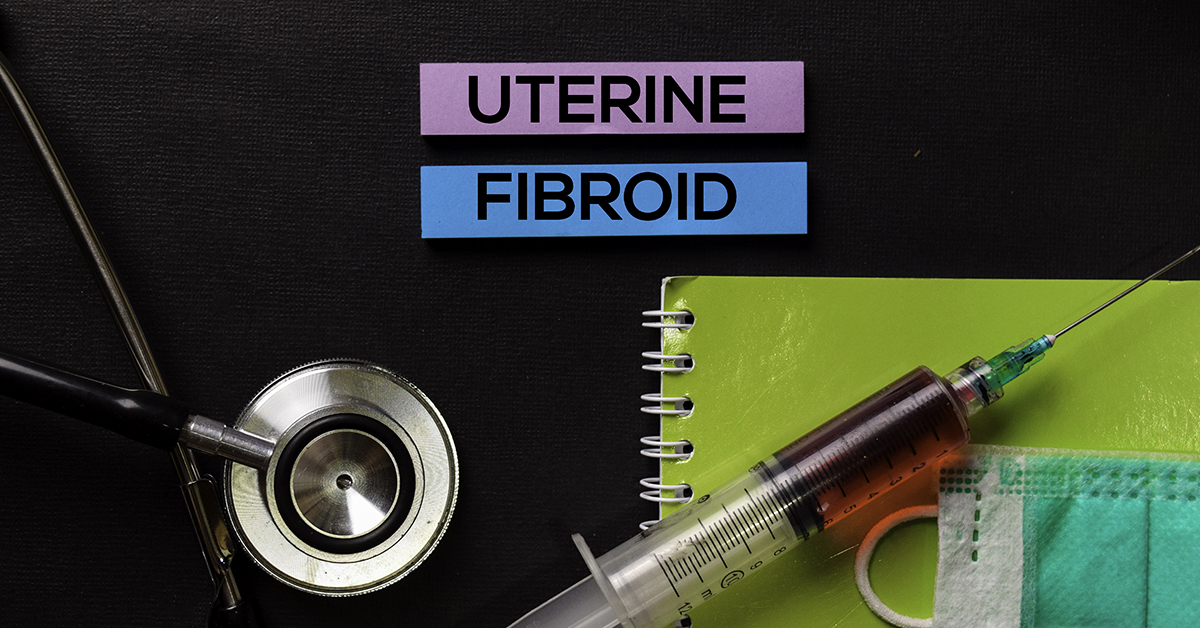
If you are on a fertility journey, chances are you have come across a lot of information about different conditions and treatments. You may have seen uterine fibroids mentioned in relation to fertility and pregnancy. Uterine fibroids are pretty common, which means many women deal with them while trying to get pregnant. When it comes to fibroids and pregnancy, there are a few things you need to know.
What are Uterine Fibroids?
Uterine fibroids are benign (meaning non-cancerous) tumors that grow in or on the uterus. Fibroids can range in size from small, almost undetectable “seedlings” to large masses that can enlarge or distort the uterus. Women may have just one fibroid or several.
Fibroids are a common condition among women. Between 20-40% of women of childbearing age will experience uterine fibroids and as many as 80% of women will have a fibroid by the time she is 50.
Fibroids do not have one specific cause but may be linked to hormones and genetic changes in cells. People with a family history of fibroids are more likely to develop them, and black women are disproportionately affected by them.
Many women will not experience symptoms from fibroids, but women who do have symptoms may experience heavy menstrual periods, pelvic pain, pelvic pressure, back pain, and long menstrual periods.
How Do Fibroids Affect Pregnancy?
When it comes to fibroids and pregnancy, there are three issues to consider: the effects of fibroids on fertility, possible complications during pregnancy, and delivery risks.
Fibroids and Fertility
Sometimes uterine fibroids can affect fertility because they can cause structural abnormalities and blockages. For example, the fallopian tubes may be blocked or the cervix could be distorted, making the movement of reproductive elements difficult or impossible. They can also affect the uterine lining and how receptive it will be to an embryo.
Fibroids and Pregnancy Complications
During pregnancy, most women do not experience complications due to fibroids. The most common issue is abdominal pain with light bleeding or spotting. While not usually serious, you should still consult your doctor if you experience these symptoms. Treatment usually includes rest and pain relievers.
More serious complications are not as common and are dependent on the size and location of the fibroids. Large fibroids can restrict fetal growth if they take up too much space in the womb. Severe fibroids may also cause the womb to be an abnormal shape and cause the baby to get into a breech position. Placental abruption, when the placenta breaks away from the uterine wall, is also a risk if a fibroid is in the way.
Fibroids and Childbirth
When it comes to delivering a baby, fibroids can also cause complications. If fibroids are causing pain, that may, in turn, cause the uterus to contract and bring on preterm labor. Sometimes the doctor will recommend a cesarean delivery if a woman has fibroids to avoid possible complications during vaginal birth.
Treatment for Fibroids
If you need treatment for fibroids, it generally needs to be done when you are not pregnant. Treatment of fibroids is not recommended during pregnancy because it can pose a risk to the fetus. So, if you have fibroids and want to have children, you should consult your doctor about your condition before getting pregnant.
Some women who have fibroids do not experience adverse symptoms and may not need invasive treatment. In these cases, treatment is aimed at alleviating symptoms. Other women may require more direct treatment to relieve pain or preserve their ability to have children. In very severe cases, a hysterectomy may be recommended.
However, if you want to get pregnant in the future, you will not want a hysterectomy. Treatments that will preserve childbearing ability aim to either remove the fibroids or reduce their size so that they no longer cause complications. There are three treatments that are options for women with fibroids who want to have children:
1. Myolysis: An electric shock is used to shrink the fibroids.
2. Embolization: A minimally invasive surgical procedure done to cut off the blood supply to a fibroid. This makes the fibroid shrink.
3. Myomectomy: This is a surgery in which only the fibroids are removed from the uterus, rather than the entire uterus being removed in a hysterectomy. This surgery can be riskier than a hysterectomy but can preserve fertility.
Make An Appointment
At Carolinas Fertility Institute, we know that the fertility journey can be overwhelming and stressful, so we strive to provide the best guidance and support to our patients. If you have concerns about any fertility-related issues, including the relationship between fibroids and pregnancy, we are here to help. To make an appointment, call our Triad offices at 336-448-9100 or our Charlotte office at 844-686-2233. You can also request an appointment online.